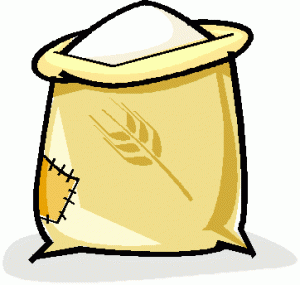From the Category, “The Eastern Eye”
[The Bible is an “Eastern” book. It was written many years ago in the “East” which today we refer to as “The Middle East.” As such, there are many customs and idioms that are not familiar to the “Western” mind.]
Bishop K. C. Pillai commented more than once that one of the main reasons people do not believe the Bible is because they do not understand it. How can you believe and trust the Bible as the Word of God if you do not understand what you are reading?
 For example, the Scriptures say that there was a famine in Samaria that was so bad that people were selling “ass’s heads” and “dove’s dung for food.” Without understanding the eastern culture, to us that sounds ridiculous. But it sounds no more ridiculous than it would to someone not familiar with our culture who hears that people in the United States eat “buffalo wings.”
For example, the Scriptures say that there was a famine in Samaria that was so bad that people were selling “ass’s heads” and “dove’s dung for food.” Without understanding the eastern culture, to us that sounds ridiculous. But it sounds no more ridiculous than it would to someone not familiar with our culture who hears that people in the United States eat “buffalo wings.”
In the lands, times, and culture of the Bible, an “ass’s head”  was what they called a root which grew in the hedges. It was not very tasty to say the least. In fact, only cows or donkeys would eat it.
was what they called a root which grew in the hedges. It was not very tasty to say the least. In fact, only cows or donkeys would eat it.
On the other hand, “dove’s dung” was a kind of a pea, similar to a chickpea, also not very tasty, which was fed to doves. During the time of the famine in Samaria, the Bible says that a fourth part of a cab of dove’s dung was sold for 5 pieces of silver. Scholars estimate that to be about a little more than half of a pint.
Meanwhile, during the famine, an ass’s head sold for around 80 pieces of silver. That is a lot of money. But there was a great famine, caused by the besieging of the enemy. This military strategy basically sealed off a city to keep anyone from anyone going in or out. The invading army then waited until those in the city either surrendered or starved to death.
During this famine, inside the city of Samaria, “ass’s heads” and “dove’s dung” were selling for some pretty outrageous prices. But if you were starving and had the money, you would pay.
The Severity Of The Situation Becomes Clear
With that understanding we can see very clearly the severity of the situation. We can recognize instantly how desperate and seemingly hopeless things were in Samaria. This is the reason the Scriptures reveal this kind of detail. God wants the reader to know the condition of Samaria at that time.
 If you take a little time to read the whole record in the book of II Kings, Chapter 6 and 7, you will discover something absolutely remarkable. Within a 24 hour period, the entire economy was completely turned around. In 24 hours, two measures of barley sold for a single shekel, and a measure of fine flour, also for one single shekel.
If you take a little time to read the whole record in the book of II Kings, Chapter 6 and 7, you will discover something absolutely remarkable. Within a 24 hour period, the entire economy was completely turned around. In 24 hours, two measures of barley sold for a single shekel, and a measure of fine flour, also for one single shekel.
Not only does God want the reader to know the severity of the famine, but He also wants the reader to see the great deliverance. Look at the contrast. During the famine a root, eaten only by cows and donkeys, was selling for 80 pieces of silver. And, a little more than a pint of bird food was selling for 5 pieces of silver.
But, in a 24 hour period there was a drastic change in that city’s economy. The change was so great that that a measure (about a peck, or a quarter of a bushel) of fine flour was now selling for one shekel, and about a half a bushel of barley was also selling for one shekel.
What About In Our Lives?
When you read this record with the understanding of the culture of those times, you can certainly appreciate the great deliverance God brought to the city of Samaria. But while we can be happy for them, let’s not overlook God’s power and deliverance in our lives too.
There is no situation in your life that is too difficult for God. Reading an account like the famine in Samaria ought to give us a real boost in our trust and confidence in God to help us in our own circumstances, regardless of how desperate or severe they appear to us.
II Kings 6:25
And there was a great famine in Samaria: and, behold, they besieged it, until an ass’s head was sold for fourscore pieces of silver, and the fourth part of a cab of dove’s dung for five pieces of silver.II Kings 7:1 and 18
Then Elisha said, Hear ye the word of the LORD; Thus saith the LORD, Tomorrow about this time shall a measure of fine flour be sold for a shekel, and two measures of barley for a shekel, in the gate of Samaria.And it came to pass as the man of God had spoken to the king, saying, Two measures of barley for a shekel, and a measure of fine flour for a shekel, shall be tomorrow about this time in the gate of Samaria.
Note: I would encourage you to read the entire Biblical account: II Kings 6:24-7:19
Mike Verdicchio
______________
Leave A Comment!
What do you have to say? We’d love to hear what you think. Please type your comment below.
Share This Article!
To share this article on social media, like Facebook, or, Twitter, there are buttons below. Or, if you are a subscriber receiving these posts by email, feel free to forward them to others.
Resources
There are a number of books that you can read to get insight on customs, manners, idioms and meanings from the Eastern culture in which the Bible was written. The best I know of were written by Bishop K. C. Pillai I have had the pleasure of listening to many recorded teaching by him.
He wrote three books, and they are hard to find, and are usually over priced. But, if you want to you can check this link to see what Amazon has to offer. Light Through an Eastern Window
Another great resource that I have used for years is a book called, “Manners and Customs of the Bible,” by James Freeman. Mine was printed in 1972 and I know they have newer additions. For the newest edition, just click the link and it will take you to Amazon. The New Manners and Customs of the Bible (Pure Gold Classics)

In opening this site \I expected to see principles and patterns derived from the reading to enable one to not miss a 24hour economic transformation.
Emily,
Sorry to disappoint your expectations; I do hope you found something of value regarding your own personal economic situation.
God bless you,
Thank you for this message. God really is the God of all impossibilities. I will keep trusting in Him. I know He will show up to the difficult situations in my life. Thank you again for the inspiring bible study. God bless you in Jesus name. Amen
Thank you, Mrs. Eniola for your kind words. God bless you.